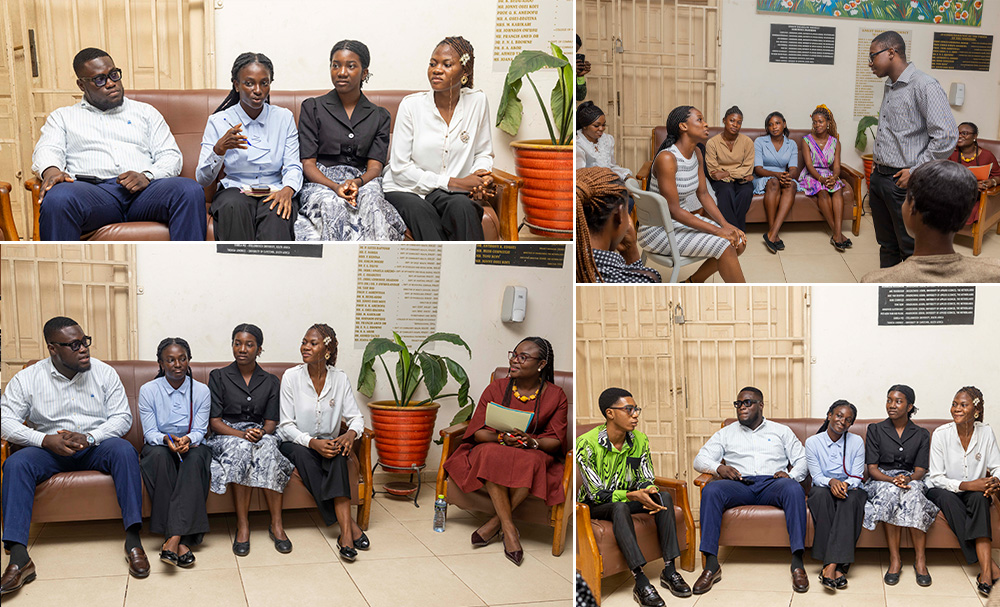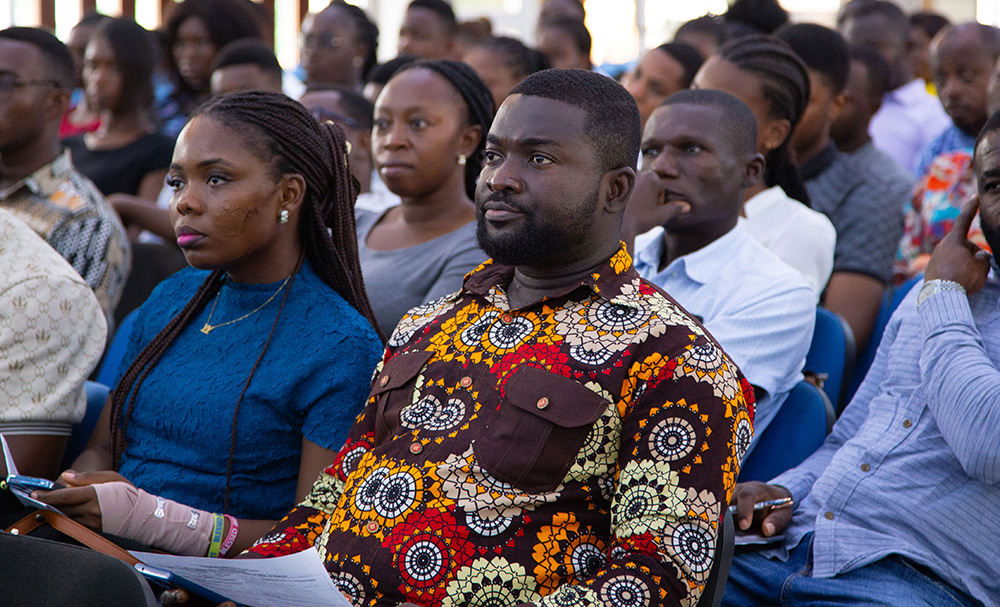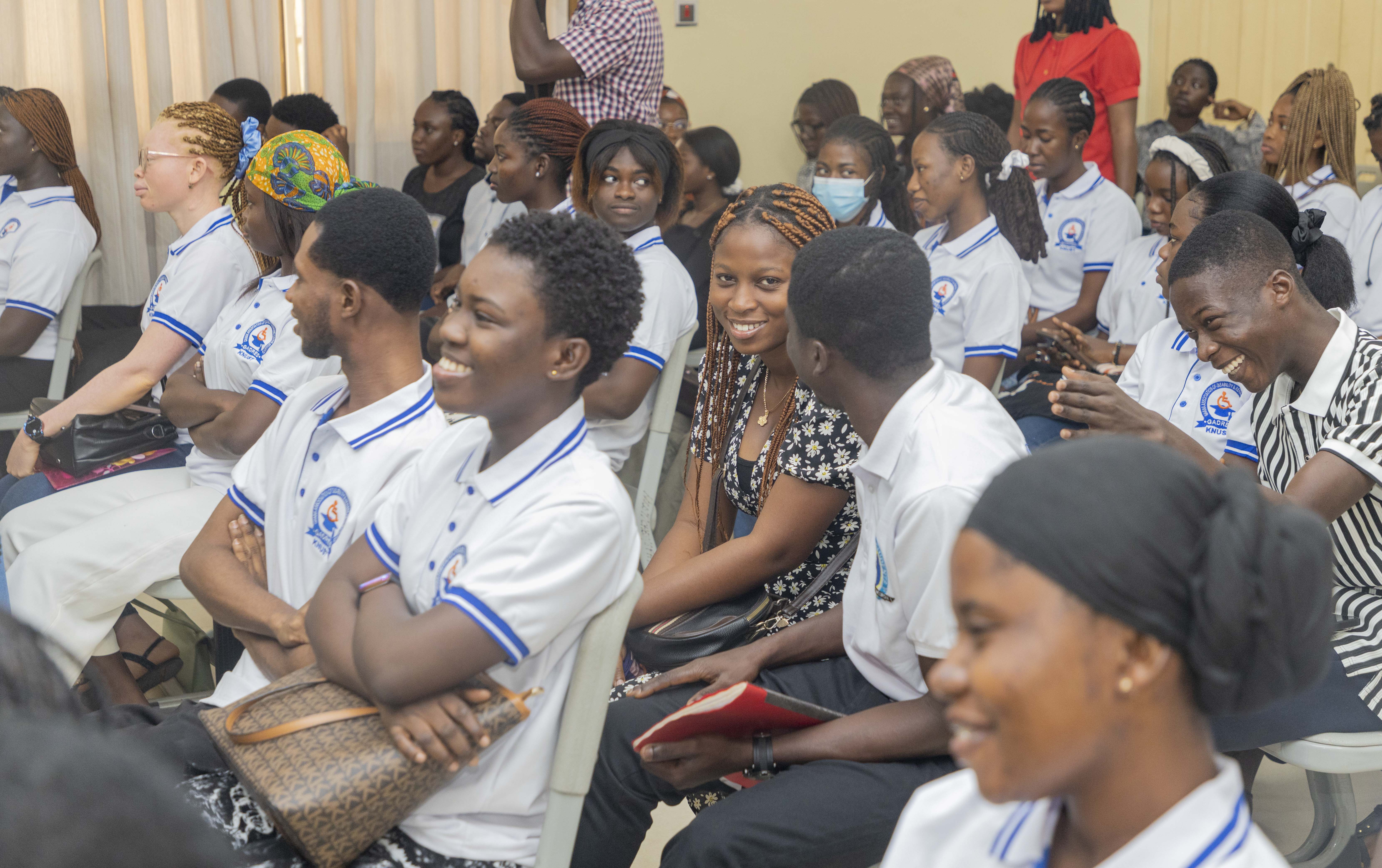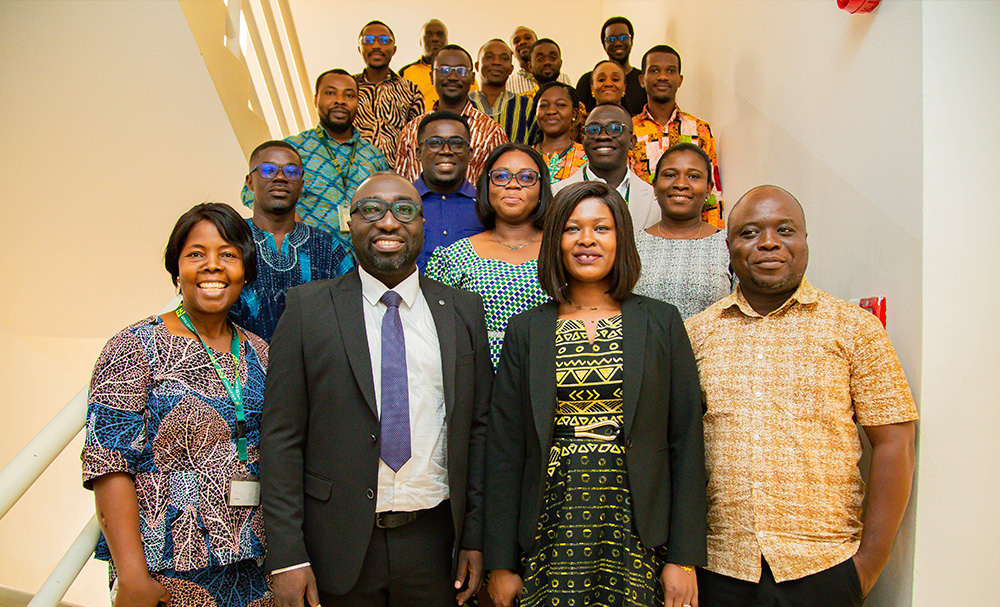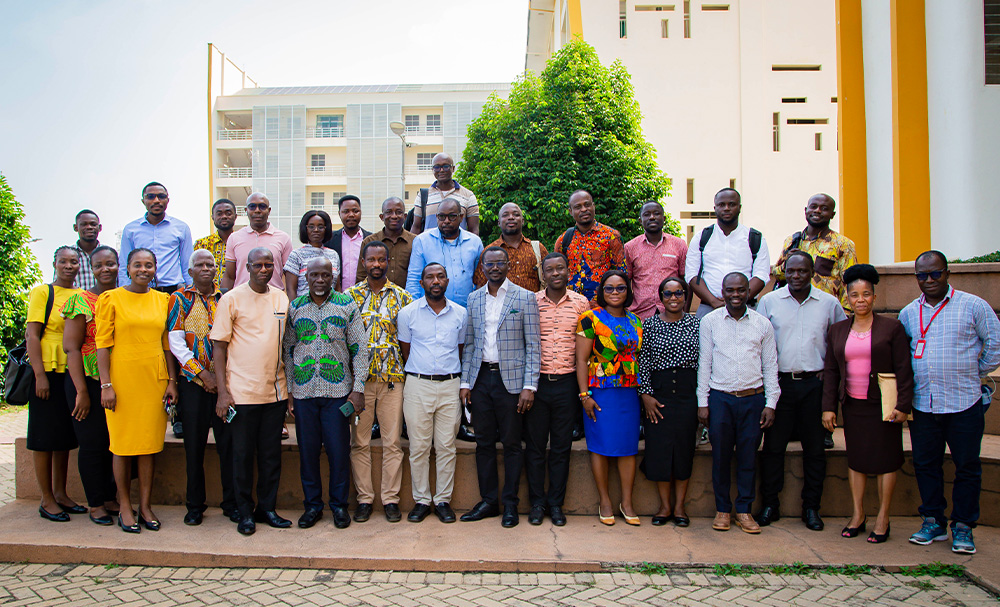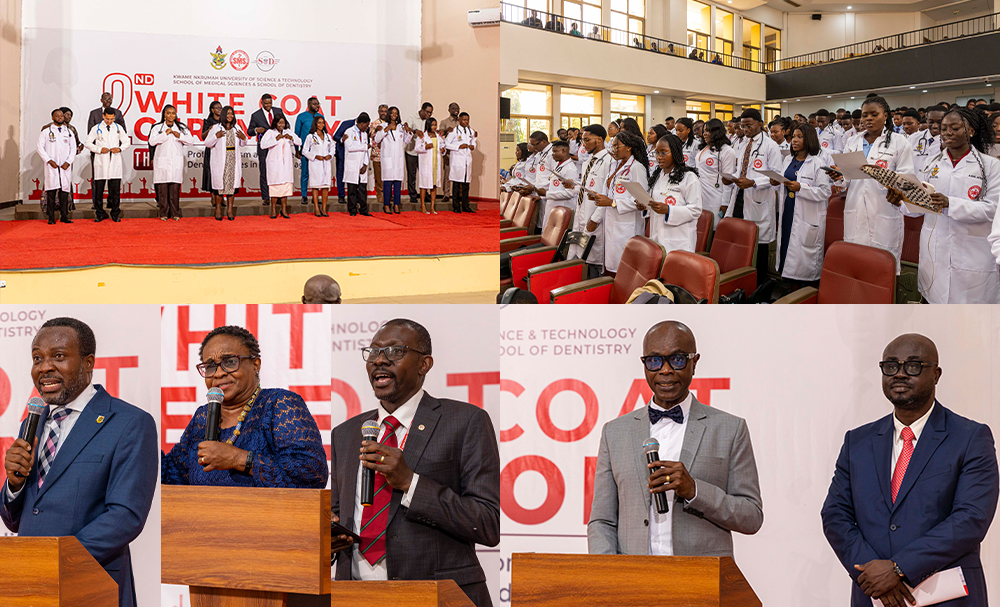KNUST School of Nursing and Midwifery Disseminates Research on Perinatal Mental Health and Inter-Professional Education
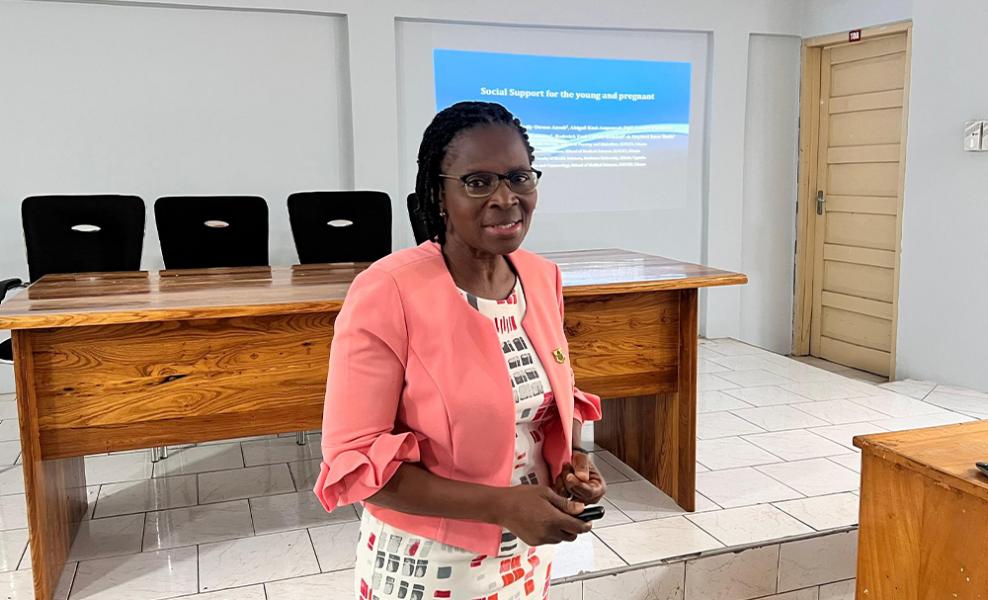
On 19th December 2024, the School of Nursing and Midwifery at Kwame Nkrumah University of Science and Technology (KNUST) hosted an important research dissemination event at the DOSA Conference Room. The event marked the culmination of a significant research and training initiative titled “Perinatal Mental Health and Inter-professional Education Project,” a vital research initiative aimed at addressing the global issue of perinatal mental health with a special focus on teenage pregnancies. The project aimed to address the mental health challenges faced by young mothers, while simultaneously promoting a collaborative healthcare approach through inter-professional education.
The research project was led by Professor (Mrs.) Victoria Bam, Vice-Dean of the School of Nursing and Midwifery at KNUST, alongside a diverse and accomplished team of researchers. Among the key contributors were Dr. (Mrs.) Abigail Kusi-Amponsah Diji, Senior Lecturer at the Department of Public Health Nursing; Rev. (Prof.) Frances Emily Owusu-Ansah, Head of the Department of Behavioural Sciences; Mrs. Alberta Yemotsoo Lomotey, Senior Lecturer in Public Health Nursing, Dr. Roderick Emil Larsen-Reindorf of Department of Obstetrics and Gynaecology and Mr. Hayford Isaac Budu from the Department of Nursing, KNUST. They were joined by international collaborators, including Professor Rose Nabirye from Busitema University, Uganda, and Dr Joseph Kirabira from Mbarara University of Science and Technology, Uganda.
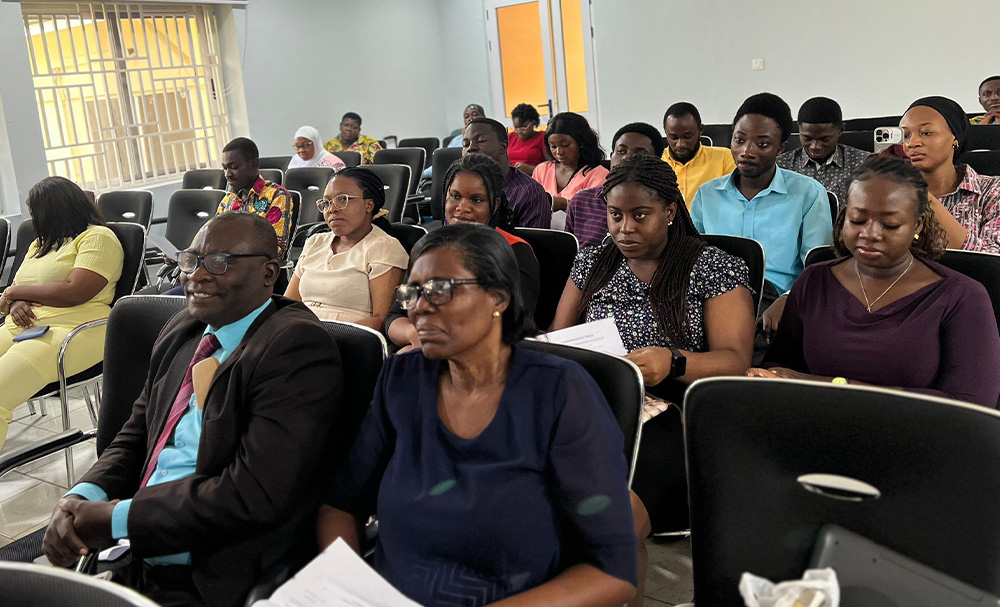
At the heart of this project is the recognition that mental health during pregnancy and the postnatal period is a rising global concern. The study primarily focused on teenage pregnancies, a demographic at high risk for mental health issues such as anxiety, depression, and stress. The researchers were particularly motivated by the fact that while physical health during pregnancy receives substantial attention, the mental well-being of young mothers is often overlooked, leaving them vulnerable to long-term psychological struggles.
Professor (Mrs.) Victoria Bam explained that the aim of the study was to raise awareness of these mental health challenges and to find ways to better support pregnant teens and young women. “Mental health in the perinatal period is just as important as physical health, yet it is often overlooked, especially in adolescents. This research aims to fill that gap,” she stated.
In addition, the research team highlighted the critical role of inter-professional education (IPE) in tackling this issue. IPE aims to foster teamwork among health professionals by helping students from various disciplines—medicine, nursing, midwifery, public health, and psychiatry—understand each other’s roles and responsibilities before they enter clinical practice. This collaborative approach is crucial in delivering holistic care to vulnerable populations, such as pregnant teenagers, and ensuring that they receive the appropriate mental health support.
The project was made possible through a generous grant of $20,000 USD from AFREhealth, funded by the National Institutes of Health (NIH). The team, in collaboration with the Regional Health Directorate, identified districts with high rates of teenage pregnancies. They worked closely with midwives and health officials in these areas to recruit teenage girls and young women who were pregnant and willing to participate in the study.
The research took a hands-on approach, with team members visiting local healthcare facilities to engage directly with expectant young mothers. Through these visits, they were able to provide vital mental health support, gather data, and offer counselling services to participants. Dr. Kusi-Amponsah Diji highlighted the significance of this approach: “Our goal was not just to collect data but we wanted to make a tangible impact in the lives of these young women. Our team worked directly with health professionals in the field, providing hands-on training and support in perinatal mental health care.”
The dissemination session at KNUST provided a platform for the research team to share their findings and discuss the outcomes of the project with a broad audience, including faculty members, healthcare professionals, and students. The event was an important milestone in raising awareness about perinatal mental health and underscored the significance of collaborative, inter-professional approaches in healthcare education.
Professor Bam emphasized that the study’s outcomes could shape future policy and practice in maternal health, especially for vulnerable groups like pregnant teenagers.
In conclusion, the “Perinatal Mental Health and Inter-professional Education Project” represents a significant step in both research and training. The research is set to influence future policies and practices, promoting a stronger focus on mental health within maternal healthcare. The collaboration between KNUST, Busitema University, and Mbarara University also highlights the global nature of the issue, aiming for lasting improvements in care and training. The hope is that the findings will contribute to shaping policies and practices that improve maternal mental health and promote inter-professional collaboration in healthcare across the globe.

